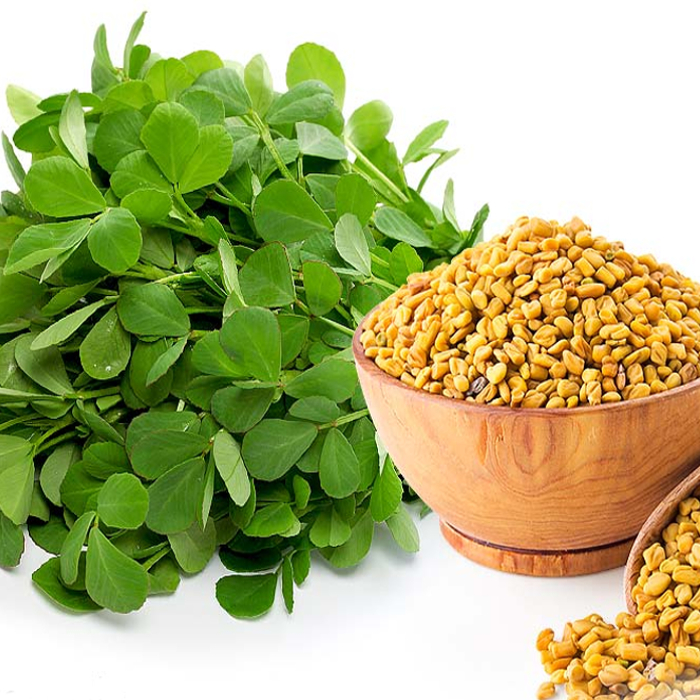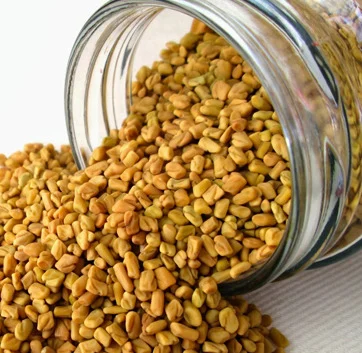
Introduction: Fenugreek, scientifically known as Trigonella foenum-graecum, is an herb native to the Mediterranean region, southern Europe, and western Asia. Its culinary and medicinal uses date back thousands of years, with mentions in ancient Egyptian, Greek, and Roman texts. In recent years, fenugreek has gained attention for its potential health benefits and versatile applications in cooking. This article delves into the various aspects of fenugreek, from its nutritional profile to its medicinal properties and culinary uses.
Nutritional Profile: Fenugreek seeds are rich in nutrients, including protein, fiber, vitamins, and minerals. They contain high levels of iron, magnesium, manganese, and copper. Additionally, fenugreek is a good source of vitamins A, B6, and C. These nutritional components contribute to fenugreek’s health-promoting properties and make it a valuable addition to a balanced diet.
Health Benefits:
- Digestive Health: Fenugreek seeds are known for their digestive benefits. They contain soluble fiber, which aids in digestion and helps prevent constipation. Additionally, fenugreek is believed to stimulate the production of digestive enzymes, facilitating the breakdown of food and absorption of nutrients.
- Blood Sugar Regulation: Several studies have suggested that fenugreek may help regulate blood sugar levels, making it beneficial for individuals with diabetes. Compounds in fenugreek seeds, such as galactomannan, may improve insulin sensitivity and reduce blood sugar spikes after meals.
- Weight Management: The soluble fiber in fenugreek seeds can promote satiety and reduce appetite, potentially aiding in weight management. By slowing down the emptying of the stomach and promoting feelings of fullness, fenugreek may help control food intake and prevent overeating.
- Cholesterol Reduction: Some research indicates that fenugreek may help lower cholesterol levels, particularly LDL (bad) cholesterol. Compounds like saponins and fiber in fenugreek seeds may inhibit cholesterol absorption in the intestines and promote its excretion from the body.
- Anti-Inflammatory Effects: Fenugreek possesses anti-inflammatory properties, attributed to compounds like fenugreekine and diosgenin. These compounds may help reduce inflammation in the body, offering potential benefits
- for conditions such as arthritis and inflammatory bowel disease.
Culinary Uses: Fenugreek is a versatile spice that adds a distinctive flavor and aroma to various dishes. Both the seeds and the leaves (known as fenugreek greens or methi) are used in cooking. Here are some common culinary uses of fenugreek:

- Spice Blend: Fenugreek seeds are often used in spice blends, such as curry powder and garam masala, to add depth and complexity to Indian and Middle Eastern cuisines.
- Flavoring Agent: Fenugreek seeds are commonly toasted or lightly roasted before being ground into a powder. This process enhances their flavor profile, which is described as slightly bitter, nutty, and reminiscent of maple syrup.
- Vegetable Dishes: Fenugreek leaves are used as a fresh herb in various vegetable dishes, particularly in Indian cuisine. They impart a distinct flavor and aroma to dishes like methi sabzi (fenugreek vegetable curry) and aloo methi (potatoes with fenugreek leaves).
- Bread and Flatbreads: Fenugreek seeds or dried fenugreek leaves (Kasuri methi) are often added to bread doughs, such as naan or paratha, to infuse them with flavor.
- Herbal Tea: Fenugreek seeds can be steeped in hot water to make a fragrant and mildly bitter herbal tea. This tea is believed to have various health benefits, including aiding digestion and promoting lactation in breastfeeding mothers.
Conclusion: Fenugreek is a versatile herb with a long history of culinary and medicinal use. Its nutritional richness, coupled with its potential health benefits, makes it a valuable addition to any diet. Whether used as a spice in cooking or consumed as an herbal remedy, fenugreek offers a myriad of flavors and potential health-promoting properties that continue to intrigue researchers and culinary enthusiasts alike. Incorporating fenugreek into your diet may not only enhance the taste of your dishes but also contribute to your overall health and well-being.
